- Your benefits as a Premium Member
10% off items
Free shipping from €20.00
- Help & Contact

Mineral or chemical sunscreen: that's what it comes down to
To ensure that UV rays from the sun cannot damage your skin, it is important you provide it with sufficient sun protection. So which is better – chemical or mineral sunscreen? We’ll explain the differences and show you how to get the perfect summer tan on well-protected skin.
09 April 2025 • 2 min. reading time
Table of contents
Chemical sunscreens
As with peels, you can also choose between chemical and mineral versions when it comes to sunscreens. Chemical sunscreens feature the advantage of having a light texture, are easy to spread on the skin thanks to their fluid texture and absorb fast. Ingredients – like octinoxate, oxybenzone and avobenzone – deactivate the harmful UV rays. A small amount of heat is generated as a by-product of the chemical processes. To get the full protective effect, you should apply chemical sunscreens at least 20 minutes before spending time in the sun.
Mineral sunscreens
Mineral sunscreens – as opposed to chemical sunscreens – are not absorbed by the skin but rather remain on the surface of the skin. Ingredients contained in sun blocks – like titanium dioxide and zinc oxide – form a physical barrier that deflect the UV rays of the sun so they cannot penetrate the skin.
Advantages of chemical and mineral sunscreens
What are the arguments in favour of chemical sunscreens?
- Extremely resistant to sweat and water: Chemical sunscreens are absorbed by the skin and are therefore more resistant to sweat and water than mineral-based sunscreens.
- No visible residue: Due to their lighter formula, chemical sunscreens leave virtually no residue on the skin.
- Combined with nourishing ingredients: To protect sun-exposed skin from the signs of premature skin ageing and to keep it nice and smooth, chemical sunscreens are often enriched with nourishing ingredients – like antioxidants, enzymes and peptides.
- Easy to use: Due to their delicate fluid consistency, chemical sunscreens are extremely easy to apply and only a small amount is necessary to protect large areas of skin.
Chemical sunscreens
What are the arguments in favour of mineral sunscreens?
- Immediate protective effect: If you apply mineral sunscreen, you can go into the sun straight away and you don’t need to wait 20 minutes – as you do with chemical sunscreen.
- More suitable for sensitive skin: People with sensitive skin often prefer mineral sunscreens, as the absence of chemical ingredients minimises the likelihood of skin irritation. Because mineral sunscreens only work on the surface of the skin, the pores remain open, which helps to prevent additional skin irritation.
- Good protection for the eyes: Due to the thicker consistency and good adherence to the skin, the risk of accidentally getting mineral sunscreen in your eyes or applying it to areas where it could trigger irritation and burning is reduced.
- Extremely environmentally-friendly: chemical sunscreens can contain ingredients that lead to coral bleaching. It is therefore important when buying chemical sunscreen to look out for the quality seal. There is no danger of this with mineral sunscreens.
Mineral sunscreens
Chemical or mineral sunscreen – which one suits me best?
As you can see from the differences between chemical and mineral sunscreens, each variant has its individual merits. Both chemical and mineral sunscreens offer reliable protection from UVA and UVB rays from the sun.
If you play a lot of sports or like to go swimming, chemical sunscreen, which absorbs into the skin without leaving any residue, is advantageous. If your skin is very sensitive and inclined to impurities, a mineral sunscreen could be a better choice for you.
Takeaway
High-quality chemical and mineral sunscreens offer your skin reliable protection from the UV rays of the sun. Whereas chemical sunscreen is absorbed by the skin, leaving virtually no residue behind, and frequently contains nourishing ingredients, mineral sunscreens work on the surface of the skin. Which version you prefer, essentially depends on your individual preferences and the special requirements of your skin. With both products, it is important that you choose the right SPF and regularly reapply the cream when you spend a long time in the sun to top up the protective effect.


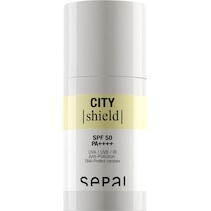

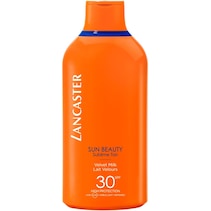


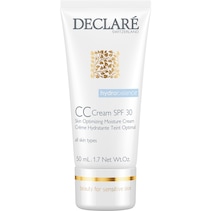
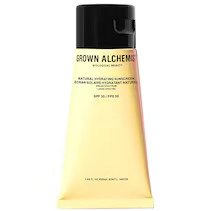

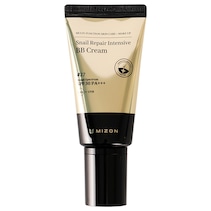
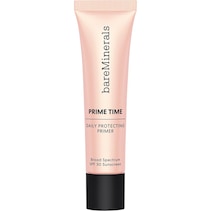
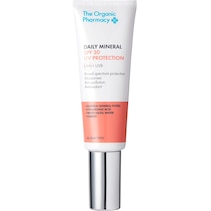

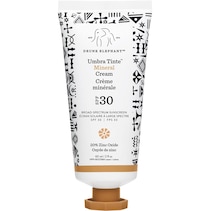















 Certified security
Certified security








